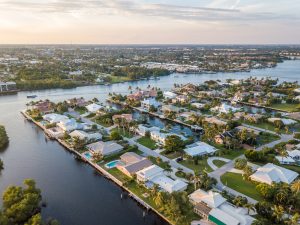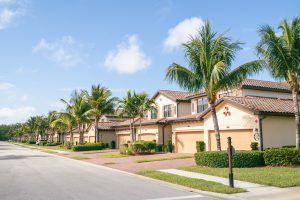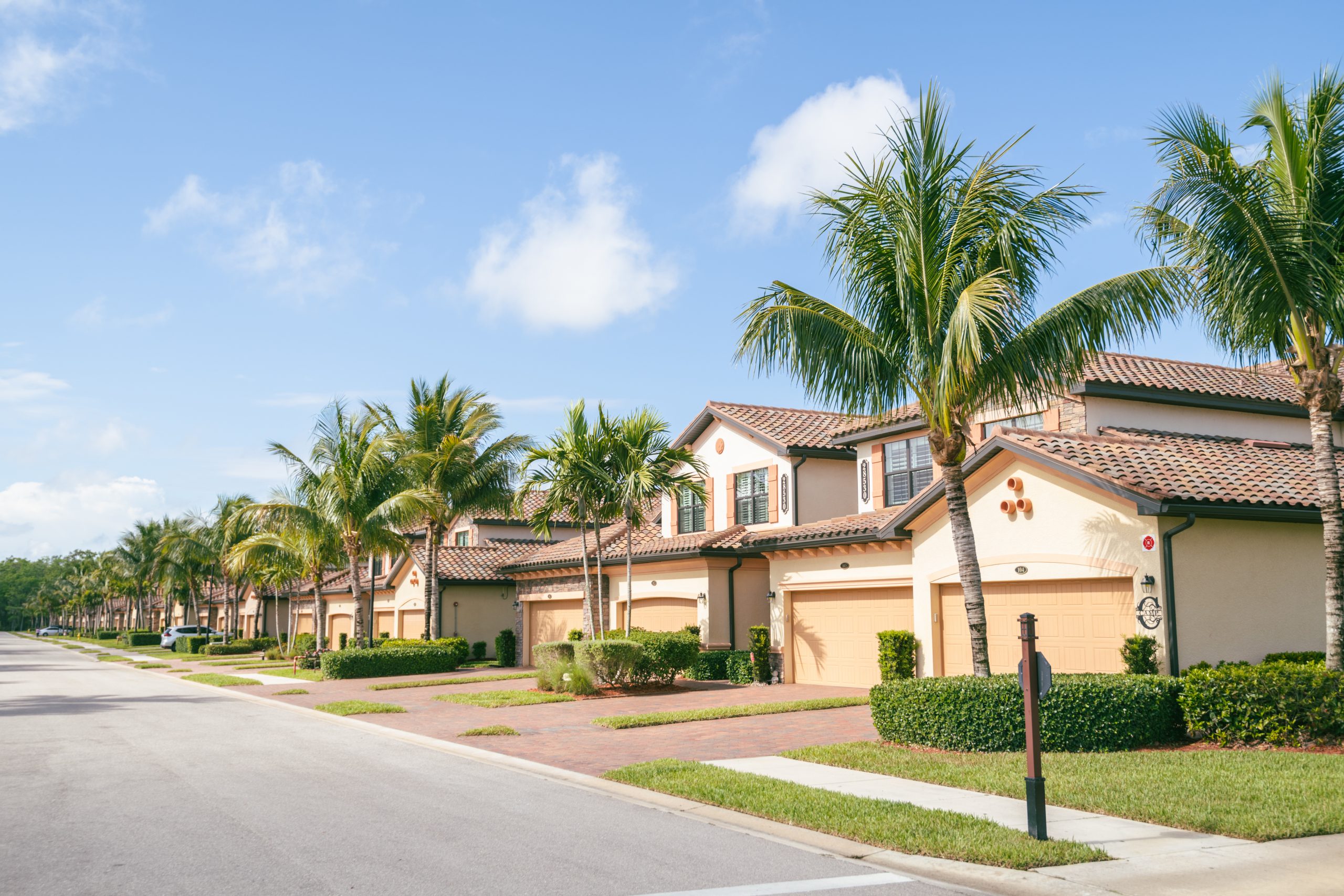A lot has changed about Florida real estate since March. It’s still about supply and demand, of course. That part hasn’t changed. But market dynamics have changed.
According to Sharestates Florida Regional Sales Director Scott Evans, existing home sales are on the decline, and it’s easy to see why. Interest rates are on the rise and inflation is causing a slowdown in the market overall. In June, the Fed hiked interest rates a whopping .75 percent, the highest increase since 1994. That kind of interest rate tinkering doesn’t happen without an impact on real estate markets. It has exposed some fragility in the markets.
Another thing that is changing in Florida’s real estate market is the inventory. It’s also on the rise. And because supply is going up, prices are coming down.
“The market is positioning itself to present some good buying opportunities for investors and smart home buyers,” Evans said. He expects home prices to come down even more and when they get to a certain point, smart home buyers and investors, some of whom have been sitting on the sidelines for a few months, are going to jump in and take advantage of low home prices.
Real Estate Dynamics Impact on Lending and Development
 There are likely to be some changes in the private real estate lending market by the end of the year, Evans said. As home values come down and interest rates go up, lenders will have to adjust. He doesn’t expect an increase in non-performing loans like there was in the years of the Great Recession. However, he is seeing an uptick in foreclosures.
There are likely to be some changes in the private real estate lending market by the end of the year, Evans said. As home values come down and interest rates go up, lenders will have to adjust. He doesn’t expect an increase in non-performing loans like there was in the years of the Great Recession. However, he is seeing an uptick in foreclosures.
“The market is weakened, for sure,” he said.
One metric Evans has noticed is the number of loan applications. They’re way down. And builders are continuing to build wherever there is land. Investors who bought properties three months ago bought at the height of the market, so if they were planning to sell in three to six months, they’ll likely sell at a loss or their profits will be significantly decreased by the direction of the market.
There has been a building spree all over Florida for a couple of years. Ground-up development is still strong, new starts are strong, and developers are continuing to execute on builds they’ve started. That hasn’t changed.
While new construction is strong, builders are still well behind the demand curve. Single-family and multi-family housing are both being added to the inventory and will continue to be added to the housing inventory for the foreseeable future. Because of the increase in supply and downward pressure on home prices, Evans is watching the market pivot from a seller’s market, where it was three months ago, to a buyer’s market which will likely be by the end of the year.
The Florida Rental Market Remains Strong
 Evans noted that Florida’s real estate market is in a unique situation right now as a result of the economic forces shifting toward buyers.
Evans noted that Florida’s real estate market is in a unique situation right now as a result of the economic forces shifting toward buyers.
“Florida is in what I’d call a rental bubble,” he said. “It’s the first of its kind.”
Rents have increased significantly in the last year, especially in Tampa, Miami, and Orlando. Evans doesn’t believe the market can sustain the high rents and they will have to come down. In fact, he said some investors and landlords will likely have to sell some properties before they had planned to or end up losing money.
“Rentals are supposed to be a long-term hold, but wages aren’t keeping up with inflation and that’s hurting the market,” Evans said. He also noted that Orlando is the highest in the nation in vacancies.
According to Lending Tree, Florida is ranked sixth, with a vacancy rate of 17.13 percent, among all the states in housing vacancies. That includes all homes, not just rentals. Still, with the changing dynamics in the market, there is hope for renters who may be feeling pressure due to high inflation, high rents, and high home prices. If supply goes up enough and home prices come down enough, some of those renters will move into the homebuyer market.
Another change that is happening is that employers are calling employees back to work. Florida was one of the largest benefactors of the remote work trend caused by the pandemic. Some of the people who relocated to Florida are now heading back to their home states to work in the office again.
“Between home values, rents, insurance, and the cost of goods and services,” Evans said, “Florida is becoming one of the most expensive places to live.” That’s another reason people are leaving the state.
Will Florida Remain a Good Place to Invest in Real Estate?
 Despite the building spree, Florida still has a low inventory of homes for the market. One reason for that is because demand has gone down. Rising interest rates and home prices have slowed demand. However, the market is transitioning.
Despite the building spree, Florida still has a low inventory of homes for the market. One reason for that is because demand has gone down. Rising interest rates and home prices have slowed demand. However, the market is transitioning.
One of the tell-tale signs of this transition is the number of homes for sale in Florida has doubled in the last two months. At some point, the market will reach a point of equilibrium where buyers and sellers agree on prices, homes sell at a reasonable price in a reasonable amount of time, and both buyers and sellers are happy overall. Evans doesn’t see that happening this year, but likely sometime next year.
“The Fed is going to continue to raise interest rates,” he said. “That will affect traditional buyers and builders are going to continue to complete large subdivisions of homes.” In essence, as prices come down and supply goes up, demand will increase and vacancies will decrease. But it won’t happen overnight.
Three months ago, cash buyers and international buyers were huge parts of the market in Florida real estate. While they’re still a factor, they are less of a factor than they were. That means traditional home buyers have more of an opportunity to get the house they want at a price they’re willing to pay. It has lessened the competition in the homebuying market. Evans sees those investors getting back into the market when prices get low enough.
In the ground-up market three months ago, many homes the developers were building were pre-sold. Pre-sales have come down a lot. Now, developers are building for the market they hope will be there. They’ll still make money on those homes, but it won’t be as lucrative as it was at the beginning of the year.
While ground-up development is hot right now, Evans said rentals is the place to be. Even if an investor buys in at a high price, if they hold a property for 10, 15, or 20 years, the property value will likely increase.
In terms of lending, Evans said 75 percent to 80 percent of the underwriting Sharestates did three months ago were long-term and refinancing. Today, it’s fix-and-flips, rehab projects, conversions, and ground-up developments. But investors don’t care about high-interest rates, which is a good thing considering the direction that interest rates are going. They’re accustomed to paying 14 percent interest on a short-term loan. So Fed rate hikes will have less of an impact on the investor market than the general real estate market.
His advice to investors: Be smart. Be aware of the market you’re in. Have a plan and stick with it.
If you’re working fix-and-flips, develop a strategy and stick with it. Same with ground-up development. Short-term investors must have a keen awareness of the market right now, so make sure you crunch your numbers and work the deals that make sense. Long-term investors and rental investors don’t have to worry as much as the market trends.
When you’re ready for your next Florida real estate loan, call Scott Evans at Sharestates.



